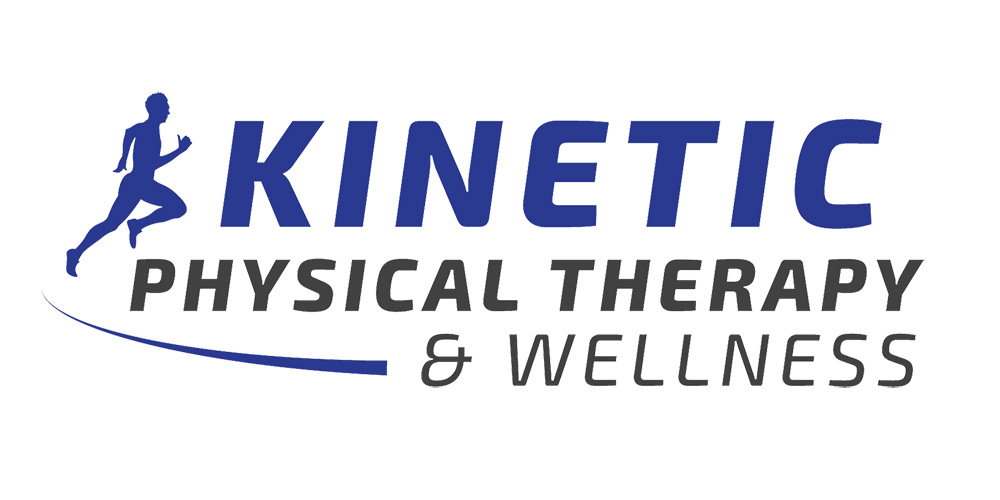

Benefits of Early Intervention Speech Therapy
In the intricate tapestry of human development, communication stands as a cornerstone. From the first babbling sounds to eloquent speeches, the journey of speech and language acquisition shapes every aspect of our lives. However, for some, this journey encounters roadblocks, hindering their ability to express, connect, and thrive. Early intervention speech therapy emerges as a beacon of hope, offering tailored support to address challenges and unlock potential. Join us as we delve into the depths of this transformative therapy, exploring its types, causes, and treatment, and discover how it fosters growth and development.
Understanding Early Intervention Speech Therapy:
Early Intervention Speech Therapy, as the name suggests, encompasses specialized interventions aimed at addressing speech and language delays in children at an early age. The fundamental principle underlying this approach is the recognition of the critical period of language development in the formative years of a child’s life. By intervening during this crucial window, therapists can facilitate optimal development and mitigate potential long-term impacts.
Types of Speech and Language Delays:
Speech and language delays manifest in various forms, each presenting unique challenges and requiring tailored interventions. Articulation disorders, phonological disorders, receptive language disorders, expressive language disorders, and pragmatic language disorders are among the common types encountered by speech therapists. Early intervention speech therapy encompasses a spectrum of techniques and strategies to address these diverse challenges effectively.
Causes of Speech and Language Delays:
The causes of speech and language delays are multifaceted, ranging from genetic predispositions to environmental factors. Some children may inherit speech and language difficulties, while others may experience delays due to neurological conditions such as autism spectrum disorder or cerebral palsy. Additionally, environmental factors such as limited exposure to language stimulation or hearing impairments can impede speech and language development. Early identification and intervention are paramount in addressing these underlying causes and facilitating optimal outcomes.
Benefits of Early Intervention Speech Therapy:
Enhanced Communication Skills: One of the primary benefits of early intervention speech therapy is the enhancement of communication skills. By targeting areas of difficulty and providing targeted interventions, therapists empower children to express themselves effectively, fostering confidence and autonomy.
Improved Academic Performance: Effective communication skills are fundamental for academic success. Early intervention speech therapy equips children with the tools and strategies necessary to navigate the academic environment with confidence, enhancing their ability to comprehend and communicate ideas effectively.
Social and Emotional Development: Communication serves as a conduit for social interaction and emotional expression. Through early intervention speech therapy, children develop essential social communication skills, enabling them to form meaningful connections and navigate social interactions with ease.
Prevention of Secondary Challenges: Untreated speech and language delays can have far-reaching consequences, impacting various aspects of a child’s life. Early intervention speech therapy aims to address these challenges proactively, mitigating the risk of secondary issues such as academic difficulties, social isolation, and low self-esteem.
Family Involvement and Support: Early intervention speech therapy emphasizes the importance of family involvement and support in the therapeutic process. By equipping parents and caregivers with knowledge and strategies, therapists empower them to actively participate in their child’s development, fostering a collaborative approach to intervention.
Long-Term Success and Independence: The benefits of early intervention speech therapy extend beyond childhood, laying the foundation for long-term success and independence. By addressing speech and language delays early on, therapists pave the way for smoother transitions into adulthood, empowering individuals to pursue their goals and aspirations with confidence.
Treatment Approaches in Early Intervention Speech Therapy:
Early intervention speech therapy encompasses a range of treatment approaches tailored to meet the unique needs of each child. From play-based interventions to structured therapy sessions, therapists employ a variety of techniques to facilitate speech and language development. Additionally, augmentative and alternative communication (AAC) devices may be utilized to support children with severe communication impairments, enabling them to express themselves effectively.
In the journey of human development, communication serves as a bridge, connecting individuals to the world around them. For children facing speech and language delays, early intervention speech therapy stands as a beacon of hope, offering tailored support to unlock their potential and foster growth. By addressing challenges proactively and empowering children to communicate effectively, therapists pave the way for brighter futures filled with possibilities. Embracing the benefits of early intervention speech therapy is not just an investment in a child’s present but a commitment to their future success and happiness.
At Kinetic Physical Therapy and Wellness in Greenville, NC, we’re passionate about harnessing the full potential of physical therapy to enrich lives and promote holistic wellness. Whether you’re recovering from an injury, managing a chronic condition, or striving to optimize your health and performance, our team is here to support you every step of the way. Experience the transformative power of physical therapy and unlock a world of possibilities for a healthier, happier you. Schedule your appointment today and embark on a journey toward renewed vitality and vitality.
Please Share
categories
Recent Posts

Benefits of Early Intervention Speech Therapy
In the intricate tapestry of human development, communication stands as a cornerstone. From the first babbling sounds to eloquent speeches, the journey of speech and language acquisition shapes every aspect of our lives. However, for some, this journey encounters roadblocks, hindering their ability to express, connect, and thrive. Early intervention speech therapy emerges as a beacon of hope, offering tailored support to address challenges and unlock potential. Join us as we delve into the depths of this transformative therapy, exploring its types, causes, and treatment, and discover how it fosters growth and development.
Understanding Early Intervention Speech Therapy:
Early Intervention Speech Therapy, as the name suggests, encompasses specialized interventions aimed at addressing speech and language delays in children at an early age. The fundamental principle underlying this approach is the recognition of the critical period of language development in the formative years of a child’s life. By intervening during this crucial window, therapists can facilitate optimal development and mitigate potential long-term impacts.
Types of Speech and Language Delays:
Speech and language delays manifest in various forms, each presenting unique challenges and requiring tailored interventions. Articulation disorders, phonological disorders, receptive language disorders, expressive language disorders, and pragmatic language disorders are among the common types encountered by speech therapists. Early intervention speech therapy encompasses a spectrum of techniques and strategies to address these diverse challenges effectively.
Causes of Speech and Language Delays:
The causes of speech and language delays are multifaceted, ranging from genetic predispositions to environmental factors. Some children may inherit speech and language difficulties, while others may experience delays due to neurological conditions such as autism spectrum disorder or cerebral palsy. Additionally, environmental factors such as limited exposure to language stimulation or hearing impairments can impede speech and language development. Early identification and intervention are paramount in addressing these underlying causes and facilitating optimal outcomes.
Benefits of Early Intervention Speech Therapy:
Enhanced Communication Skills: One of the primary benefits of early intervention speech therapy is the enhancement of communication skills. By targeting areas of difficulty and providing targeted interventions, therapists empower children to express themselves effectively, fostering confidence and autonomy.
Improved Academic Performance: Effective communication skills are fundamental for academic success. Early intervention speech therapy equips children with the tools and strategies necessary to navigate the academic environment with confidence, enhancing their ability to comprehend and communicate ideas effectively.
Social and Emotional Development: Communication serves as a conduit for social interaction and emotional expression. Through early intervention speech therapy, children develop essential social communication skills, enabling them to form meaningful connections and navigate social interactions with ease.
Prevention of Secondary Challenges: Untreated speech and language delays can have far-reaching consequences, impacting various aspects of a child’s life. Early intervention speech therapy aims to address these challenges proactively, mitigating the risk of secondary issues such as academic difficulties, social isolation, and low self-esteem.
Family Involvement and Support: Early intervention speech therapy emphasizes the importance of family involvement and support in the therapeutic process. By equipping parents and caregivers with knowledge and strategies, therapists empower them to actively participate in their child’s development, fostering a collaborative approach to intervention.
Long-Term Success and Independence: The benefits of early intervention speech therapy extend beyond childhood, laying the foundation for long-term success and independence. By addressing speech and language delays early on, therapists pave the way for smoother transitions into adulthood, empowering individuals to pursue their goals and aspirations with confidence.
Treatment Approaches in Early Intervention Speech Therapy:
Early intervention speech therapy encompasses a range of treatment approaches tailored to meet the unique needs of each child. From play-based interventions to structured therapy sessions, therapists employ a variety of techniques to facilitate speech and language development. Additionally, augmentative and alternative communication (AAC) devices may be utilized to support children with severe communication impairments, enabling them to express themselves effectively.
In the journey of human development, communication serves as a bridge, connecting individuals to the world around them. For children facing speech and language delays, early intervention speech therapy stands as a beacon of hope, offering tailored support to unlock their potential and foster growth. By addressing challenges proactively and empowering children to communicate effectively, therapists pave the way for brighter futures filled with possibilities. Embracing the benefits of early intervention speech therapy is not just an investment in a child’s present but a commitment to their future success and happiness.
At Kinetic Physical Therapy and Wellness in Greenville, NC, we’re passionate about harnessing the full potential of physical therapy to enrich lives and promote holistic wellness. Whether you’re recovering from an injury, managing a chronic condition, or striving to optimize your health and performance, our team is here to support you every step of the way. Experience the transformative power of physical therapy and unlock a world of possibilities for a healthier, happier you. Schedule your appointment today and embark on a journey toward renewed vitality and vitality.
Please Share
You May Also Like







